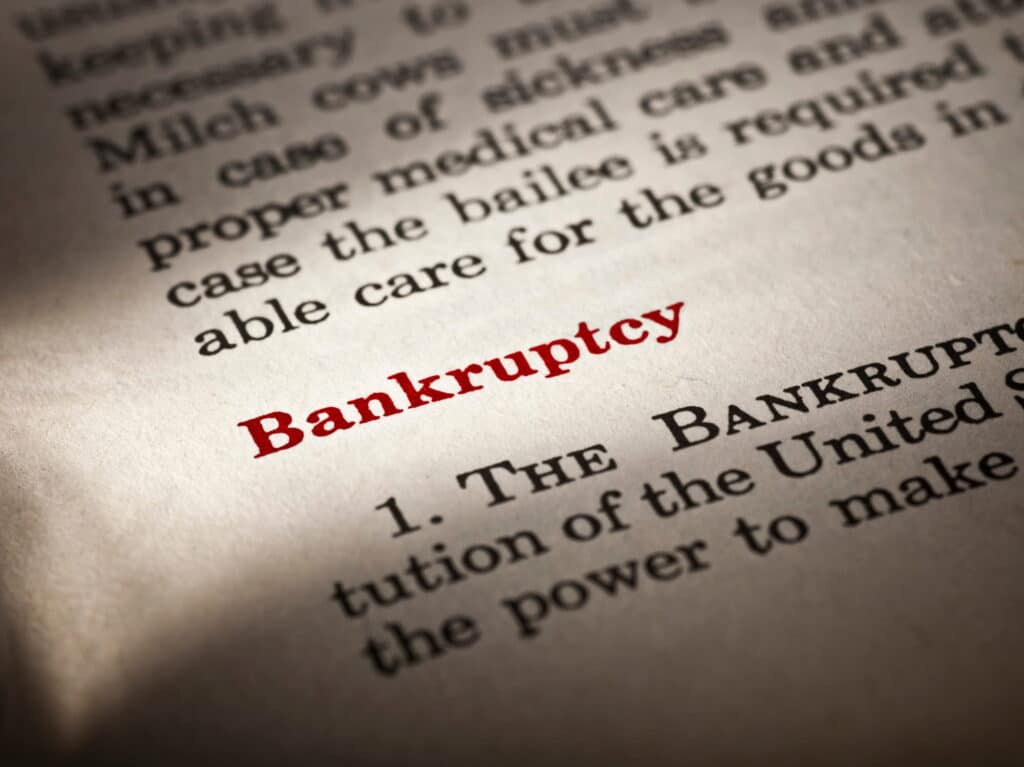Residency Requirements To File For Bankruptcy In Nevada

People with financial challenges may consider filing for bankruptcy to discharge debts they can’t repay. In 2022, over 370,000 people in the United States filed for bankruptcy.
Every state establishes its bankruptcy laws and bankruptcy process, which means people living in different parts of the country may have different requirements they must meet to file. Suppose you need to meet the bankruptcy requirements in Nevada. In that case, you’ll benefit from a closer look at the requirements for filing for bankruptcy in Nevada.
How long do you have to live in Nevada to file for bankruptcy?
Every state sets residency requirements for filing for bankruptcy. Individuals must live in Nevada for at least six months, or 180 days, before filing. However, those who’ve lived in Nevada for less than 730 days cannot claim Nevada bankruptcy exemptions, and filing for bankruptcy before you’ve resided in the state for two years complicates the bankruptcy process.
How long do you have to live in Nevada to claim exemptions in the state?
Exemptions are assets that can’t be repossessed or forfeited during bankruptcy. State exemption amounts apply to individuals. When spouses file for bankruptcy, they can double exemptions in most categories. Nevada bankruptcy exemptions for individuals include the following:
- Appliances worth $12,000 or less
- Burial plots
- Child support payments
- Eligible retirement accounts
- Health aides
- Personal library worth $5,000 or less
- Rental property deposits
- Residential property equity of $605,000 or less
- Social security payments
- Stimulus payments
- Vehicle equity of $15,000 or less
- Work-related tools
Once you’ve resided in Nevada for two years, you can claim exemptions when filing in the state.
What happens to property that you can’t exempt in Nevada?
When you file Chapter 7 bankruptcy in Nevada, you forfeit all property you can’t retain through the state’s property exemptions. These possessions are sold, and the proceeds are used to pay creditors.
Chapter 13 bankruptcy enables you to retain all your property. However, you must pay creditors the non-exempt value of the property retained. For example, Nevada allows residents to retain up to $605,000 in residential property. Suppose your property was valued at $700,000. The $95,000 of equity that doesn’t fall within the exemption amount may be included in your structured bankruptcy payments, but this depends on your disposable income. The total amount owed to creditors is compared to your disposable income during the bankruptcy process. If the amount of your disposable income exceeds the value of your non-exempt property, you pay your disposable income.
Additional requirements to file for bankruptcy in Nevada
You must file your bankruptcy case at the appropriate location in Las Vegas or Reno. Where you file depends on the county where you reside.
You must complete a credit counseling course approved by the state to qualify to file for Chapter 7 or Chapter 13 bankruptcy. You must take the course six months or less before filing for bankruptcy.
To file for bankruptcy in Nevada, you must also complete the following steps::
- Determine if you qualify for Chapter 7 or Chapter 13 bankruptcy
- Complete required forms
- File for bankruptcy
- Identify exemptions
- Complete approved debtor education course
- File debtor education course completion certificate
What types of debt can you discharge in a bankruptcy filing?
Bankruptcy law determines what types of debts you can discharge when filing bankruptcy. You may be able to cover the following when filing bankruptcy:
- Car loans
- Credit card debt
- Medical bills
- Unsecured debts
Although filing for bankruptcy can help you resolve many financial obligations, there are some obligations you can’t include in your filing. You’ll still be obligated to make any court-ordered alimony or child support payments and pay any outstanding taxes owed.
How a Nevada bankruptcy lawyer can help you understand your bankruptcy options

Dealing with financial challenges is stressful. Consequently, some individuals may avoid dealing with their financial issues until they’re forced to by their creditors.
Consulting the best bankruptcy lawyer Nevada has to offer can help reduce your stress and simplify the filing process. The bankruptcy attorneys with DeLuca & Associates bring years of experience to every case and will work with you to identify your bankruptcy options. We’ll guide you through every step of the process, enabling you to get back on your feet with a bankruptcy plan that meets your needs.
Contact a bankruptcy attorney today to receive the expert guidance you deserve and start your journey toward financial health.
Sources:
Annual number of non-business bankruptcy cases filed in the United States from 2000 to 2022. (2023).
Approved Credit Counseling Agencies. (2023).
O’Neill, C. (2022). Nevada Bankruptcy Exemptions.
Scott, E. (2022). Financial Stress: How to Cope.






